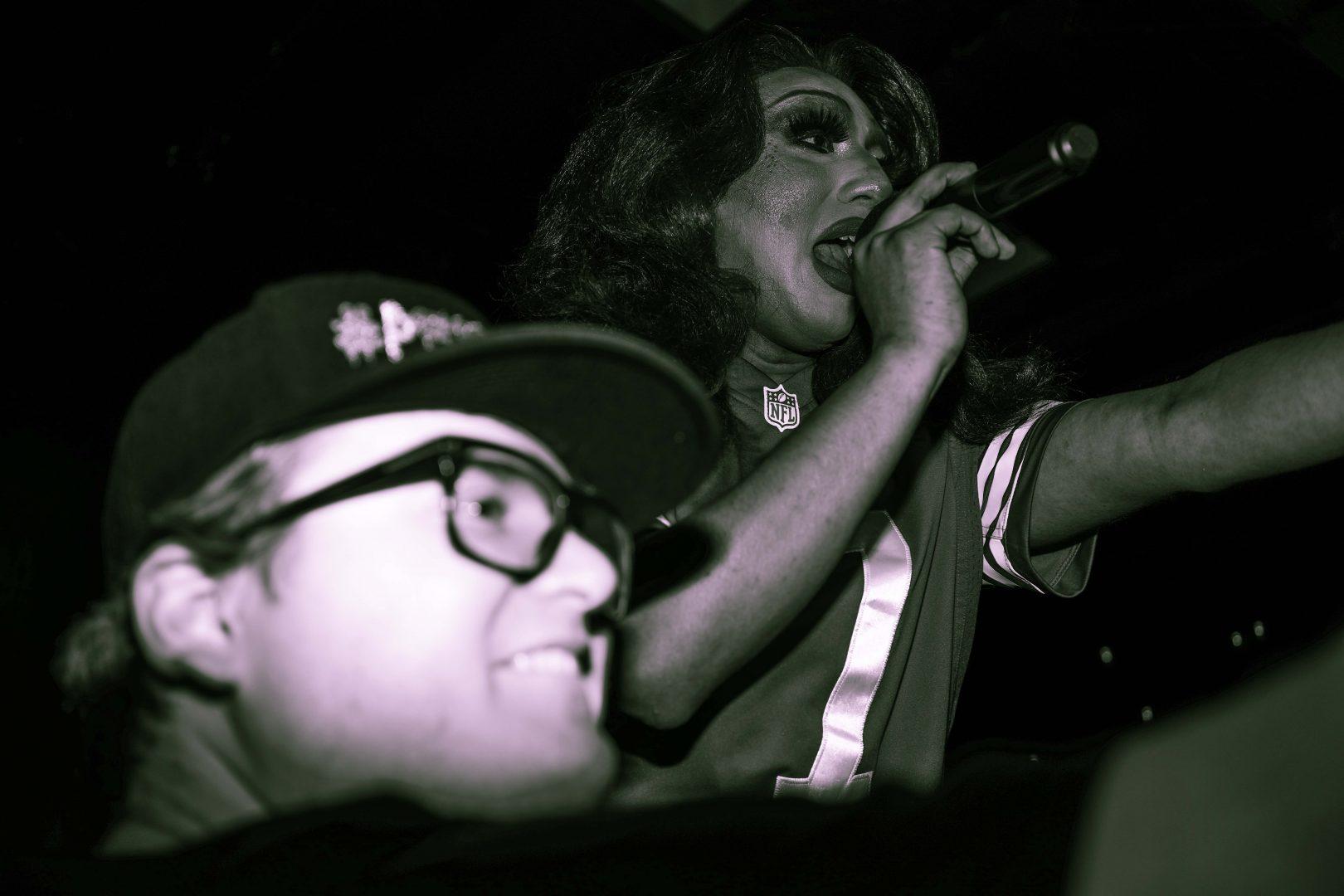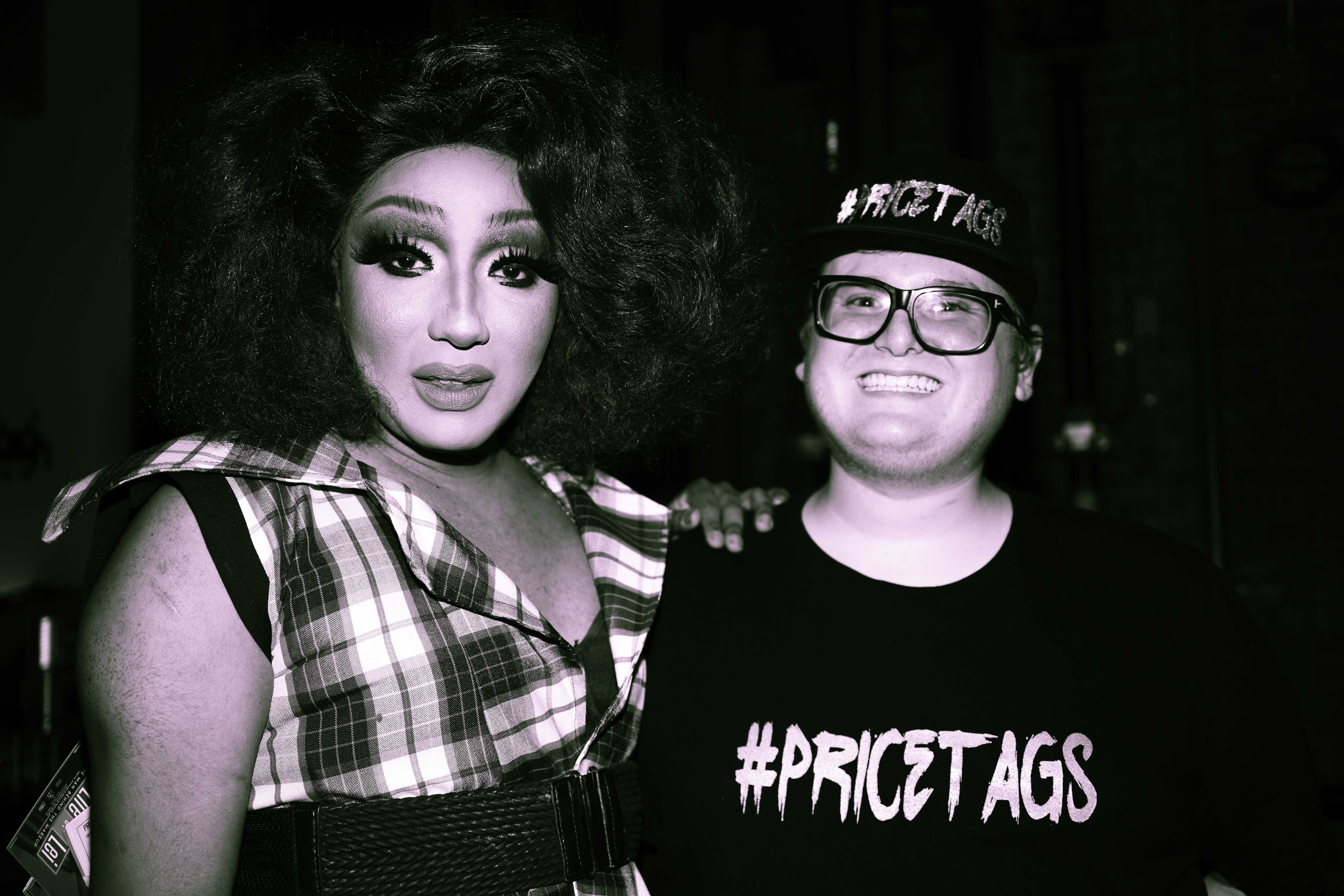Sitting modestly on his apartment couch on a recent Thursday, one hand over the other placed on his lap, Paul Hernandez wears a purple dress he wove himself using upholstery fabric, the kind that adorns sofas.
He sits up straight, with his brown-skinned face awash in colorful makeup that transforms his manly visage into the face of a diva. The heavy contour on his cheeks complements his long eyelashes. His reddish, voluminous hair is hard to miss — it very well could be what he’s known for these days.
It’s the look Hernandez wore before changing into a more revealing outfit that he prepared for his weekly performance at FAB, the nightclub in the Tower District. There, he wears a smile on his face that, up until eight years ago, wasn’t all that visible.
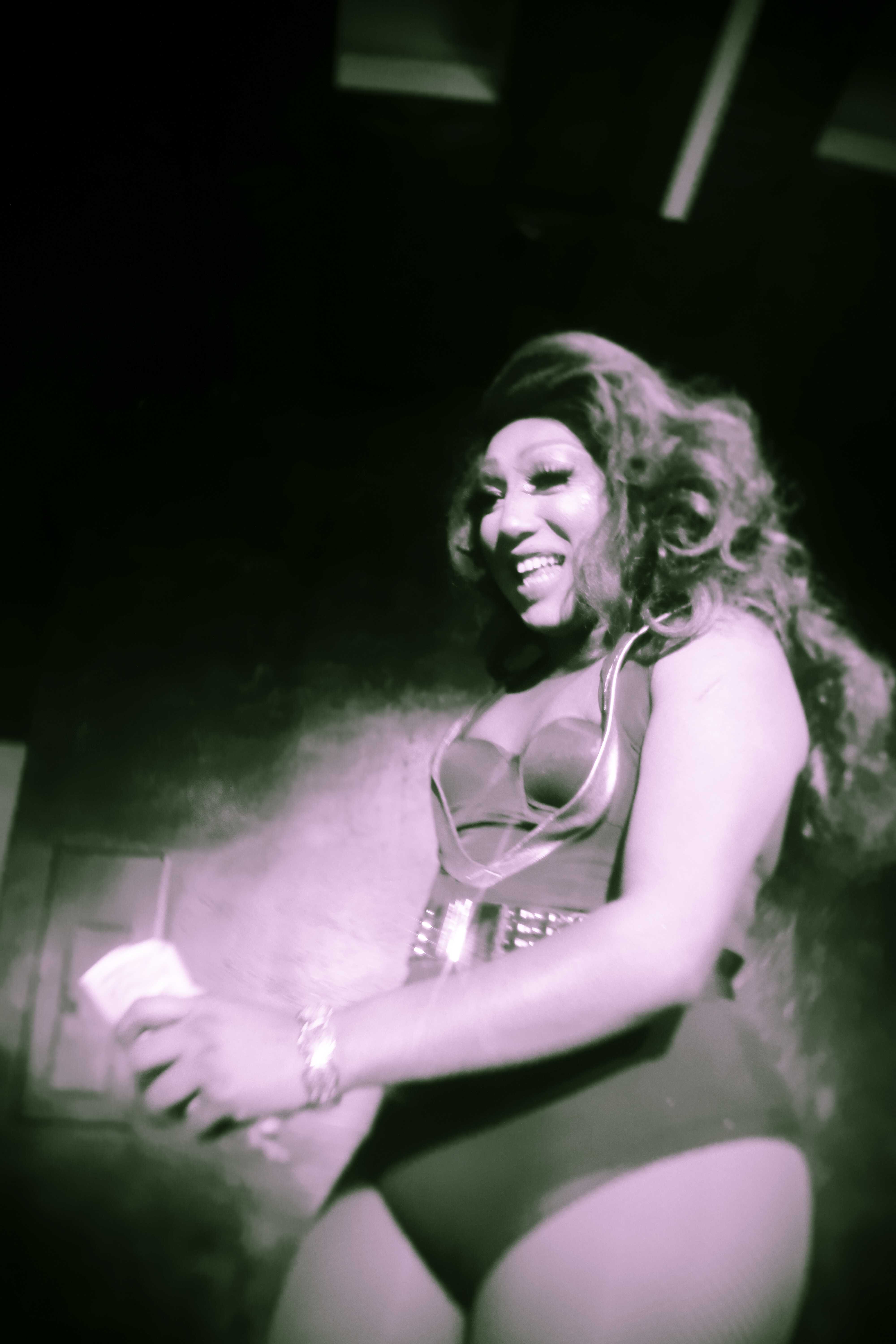 That’s because for nearly a decade, Hernandez has given face to a character that has become a staple in Fresno’s LGBTQ community. Not so much his own face, but that of the colorful and carefully-crafted Leilani Price — the stage persona adapted by Hernandez for his drag performances and appearances. Hernandez, as a man, has mostly stayed hidden from the spotlight. Until now.
That’s because for nearly a decade, Hernandez has given face to a character that has become a staple in Fresno’s LGBTQ community. Not so much his own face, but that of the colorful and carefully-crafted Leilani Price — the stage persona adapted by Hernandez for his drag performances and appearances. Hernandez, as a man, has mostly stayed hidden from the spotlight. Until now.
The trials of presenting the world with two characters molded partly by society and partly by Hernandez himself is the focus of an upcoming film that explores Hernandez’s life behind the makeup of one of Fresno’s most well-known drag queens.
The film, “The Life of Lei: The Man Behind the Makeup,” premiers on Thursday at this year’s Fresno Reel Pride Festival. It promises to give raw insight into the life of drag and what truly happens to the man who holds the heavy dress and stands on inch-high heels to put on a show.
“I would say she gave me the confidence that I never had,” Hernandez says firmly speaking about the film at his home before his performance. “I’m going to be me. If you can’t appreciate me and my beauty for who I am, then you don’t deserve me.”
Hernandez says he has no shame walking down the street in drag. He’s found support from all corners in Fresno. He does not consider himself a female impersonator, and acknowledges that Leilani’s “big hair and crazy makeup” won’t easily resemble the girl next door. Seen in person, most would agree.
In spite of that, Leilani has caught the eye of men, like that of a former neighbor who once complimented Leilani’s breasts, which led the man’s own wife to clarify, “You know that’s a man, right?” Hernandez recalls as he breaks into laughter.
Matthew Broughton, the filmmaker and a recent graduate of Fresno State’s Media, Communications and Journalism Department, has a warning for the public who may watch the film.
“Get ready because people are going to fall in love with (Hernandez),” Broughton says excitingly. “They’ll love (Leilani) more, but they’re going to fall in love with (Hernandez). I can tell you that for a fact.”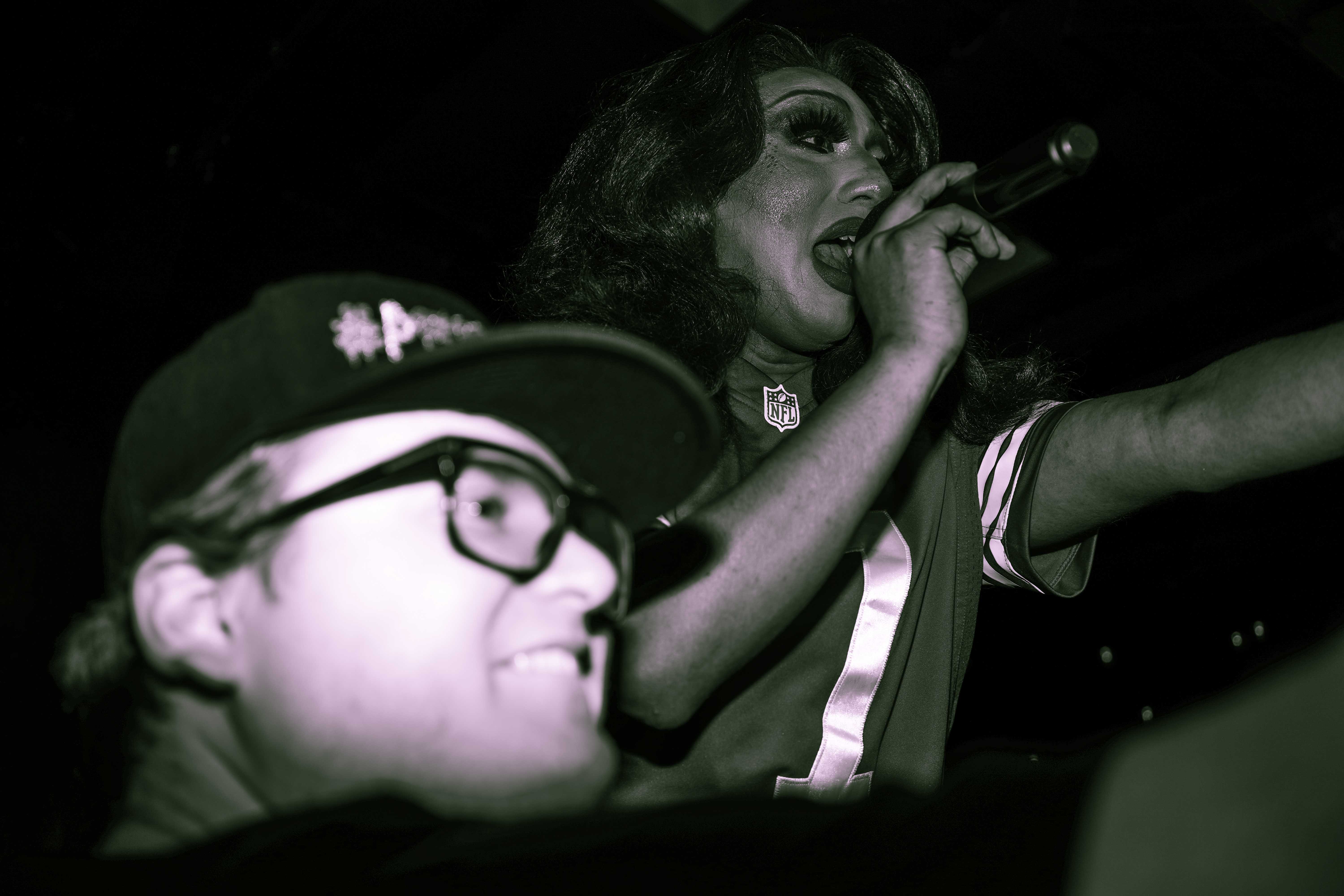
The film started partly as a joke and from interest by the community who had wondered about a film on Leilani, according to Hernandez and Broughton. The idea first stemmed from a news report filed by Broughton in his final months as a media student for Fresno State Focus, the television program produced by students in MCJ.
Unlike the news segment’s two minutes and eight seconds, this film is produced to last an hour and 15 minutes. It’s expected to present different areas that have affected Hernandez’s life, like mental health, suicide, addiction, substance abuse and domestic violence.
“Essentially, the film is about everyone. It’s going to create conversations for people in the home,” says Broughton. “I couldn’t think of a better person to be able to bring light to those issues.”
Broughton and Hernandez became close friends during the five months they filmed the documentary. Broughton glows as he speaks about the first time he met Hernandez as Leilani at a local nightclub in 2014. Hernandez teases Broughton by accusing him of “fangirling” over Leilani. Broughton wears that assertion proudly.
Meeting Hernandez two years after that first encounter was much more meaningful. Broughton says it helped him become more confident and honest with himself.
He was a host at a local restaurant in 2016 when he heard a familiar laugh coming from the dining area. It was Hernandez, who was eating at a table with a good friend.
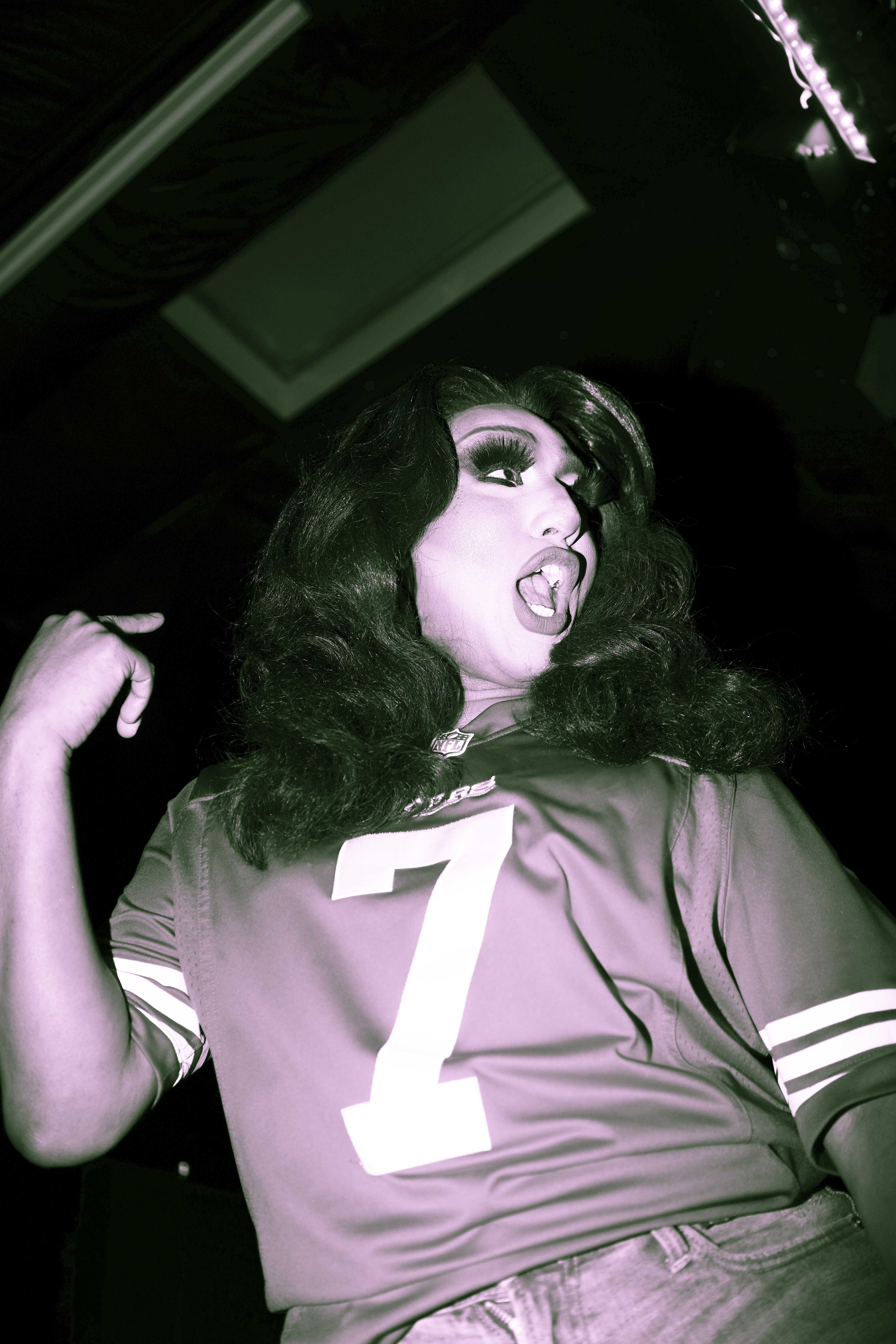 Broughton was shaken up. He couldn’t believe the man, and drag performer, he loved and admired was eating at his restaurant. He ran back to the kitchen to tell a co-worker, he remembers, and the co-worker grabbed his hand and took him over to Hernandez’s table. With his light face skin suddenly turning red, Broughton shuddered as he introduced himself that night, he says.
Broughton was shaken up. He couldn’t believe the man, and drag performer, he loved and admired was eating at his restaurant. He ran back to the kitchen to tell a co-worker, he remembers, and the co-worker grabbed his hand and took him over to Hernandez’s table. With his light face skin suddenly turning red, Broughton shuddered as he introduced himself that night, he says.
“I don’t think that I would have gotten as close to (Hernandez) and Leilani as I have,” Broughton now says. “That moment really did save my life.”
After months of filming, Broughton says he has come to consider Hernandez the brother he never had.
Funnily enough, “I’m a woman,” Hernandez responds with a heavy voice ”” joking of course. “You know what I meant,” Broughton says with a chuckle.
The film doesn’t show much of Broughton’s and Hernandez’s relationship with one another. Broughton speaks when he needs to and is mostly charged with asking the questions behind the camera that viewers may have.
Instead, the film focuses on Hernandez’s daily life as he juggles a myriad of responsibilities, from working with Fresno nonprofits, performing as Leilani and the severe toll it all takes on him personally. The film is expected to show the viewer a scene in which the production becomes all the more crucial for the public.
“The more and more I started filming there’s something that does happen in the middle of the movie that kind of changed the purpose of the film,” Broughton assures. Hernandez insists that the scene in question “just changed everything. I don’t think Matt realized what he was getting himself into.”
Broughton’s role was a difficult one, he says, because at time he wanted to step in and console his friend, but he kept his distance and set his boundaries, all part of giving the viewer the raw emotion of Hernandez’s life as a drag queen. In the end, the experience helped Broughton become a stronger storyteller, he says. Hernandez says Broughton got a front row seat at the bad, the good and the ugly of making a film that focuses on Hernandez’s life as a drag queen. Hernandez says he doesn’t view himself as a celebrity — a frown grows on his face at the mention of it — and says viewers will experience that he — and she — is just like everyone else and also struggles in life.
“I think people are going to see that I am very fragile as a boy and very insecure,” Hernandez says. “As Leilani Price, she is like my protector. She’s my shield,” he adds.
The shield that helped Hernandez grow into who he, and she, is to this day will soon be put down though, Hernandez says. Slowly, Hernandez has begun to choose when and where he performs as Leilani. Leilani has given Hernandez the confidence that he says he needed to finally express himself as a gay Latino man.
Next year will mark nine years of performing as Leilani, and it will also mark the end of the queen as well. With the exception of dressing up for Drag Queen Story Hour, where drag queens read books to children, Hernandez says Leilani will only appear on rare occasions.
Now, he says, it’s about showing the world who Hernandez is and why he, too, matters.
“There is a stigma here. If you’re not 6-foot-2, blue eyes, blonde hair, no one’s going to look at you,” Hernandez says. “I want to change that for Fresno. It’s OK to be fat, feminine and drag. I want to stick up for the underdog now.”
Hernandez will forever have Leilani to thank for helping him open up and for making him a new person. The film will show that transformation.
Tickets to the show are $10 and can be purchased on the Fresno Reel Pride website.
Photographs for this story were produced by Eric Zamora, a Fresno State Media, Communications and Journalism student.




